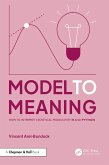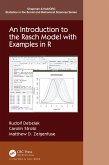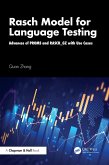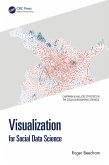Features:
- Presents a simple and powerful conceptual framework to interpret the results from a wide variety of statistical or machine learning models.
- Features in-depth case studies covering topics such as causal inference, experiments, interactions, categorical variables, multilevel regression, weighting, and machine learning.
- Includes extensive practical examples in both R and Python using the marginal effects software.
- Accompanied by comprehensive online documentation, tutorials, and bonus case studies.
Model to Meaning introduces a simple and powerful conceptual framework to help analysts describe the statistical quantities that can shed light on their research questions, estimate those quantities, and communicate the results clearly and rigorously. Based on this framework, the book proposes a consistent workflow that can be applied to (almost) any statistical or machine learning model. Readers will learn how to transform complex parameter estimates into quantities that are readily interpretable, intuitive, and understandable.
Written for data scientists, researchers, and students, the book speaks to newcomers seeking practical skills, and to experienced analysts who are ready to adopt new tools and rethink entrenched habits. It offers useful ideas, concrete workflows, powerful software, and detailed case studies, presented using real-world data and code examples.
Dieser Download kann aus rechtlichen Gründen nur mit Rechnungsadresse in A, B, BG, CY, CZ, D, DK, EW, E, FIN, F, GR, HR, H, IRL, I, LT, L, LR, M, NL, PL, P, R, S, SLO, SK ausgeliefert werden.









